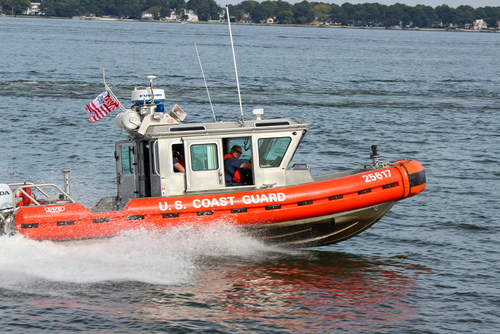
Both the Coast Guard Authorization Act and U.S. Maritime Administration (MARAD) Reauthorization Act have been added to the National Defense Authorization Act (NDAA) of 2023, increasing their odds of passage and the chance for new maritime funding.
The NDAA advanced through the House last week and is expected to pass the Senate this week, meaning that $18.9 billion would be authorized for the Coast Guard in FY23 and another $1.6 billion for the Maritime Administration to invest in the maritime workforce. In the case of the Coast Guard, this funding will take many forms: a 4.6 percent pay increase for service members, the purchase of ships, aircraft, and benefits for members, a crackdown on illegal fishing, improved infrastructure, and more. It was originally introduced by U.S. Sens. Maria Cantwell (D-WA), Roger Wicker (R-MS), and Tammy Baldwin (D-WI).
“The Coast Guard keeps our maritime economy moving and our ports and waterways secure. This bill makes the investments needed to support that core mission and will also help the Coast Guard crackdown on illegal fishing, improve oil spill response, and bolster our nation’s presence in the Arctic,” said Cantwell, chair of the Senate Committee on Commerce, Science and Transportation. “The bill also invests in the Coast Guard’s most valuable resource: its people. We must expand training and education opportunities for Coasties and improve housing, childcare, and medical services so that the Coast Guard can recruit and retain a cutting-edge and diverse workforce.”
The MARAD Reauthorization Act, introduced by Cantwell and Wicker in June, would allocate funds for a port infrastructure development program, maritime and tanker security programs, environmental and technical assistance efforts, and grants for small shipyards, marine highways, and academies. The MARAD and the Coast Guard efforts would increase protections against sexual assault and harassment. This item would also require the creation of a new National Maritime Strategy and a Maritime Innovation Center focused on technological developments while expanding grant programs for workers and environmentally beneficial studies and tech.
In addition to these major provisions, Senate efforts also got several oceans, and atmosphere-focused bills tacked onto the legislation, which altogether would authorize $429 million annually through 2027 for National Oceanic and Atmospheric Administration (NOAA) programs dedicated to maintaining safe shipping routes, expanding ocean exploration, conserving fishery resources and coral reefs, and adapting industry to the effects of climate change on the oceans. They would further increase data transparency and funding for marine mammal rescue and response.




